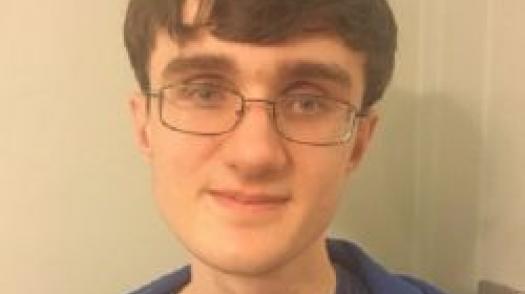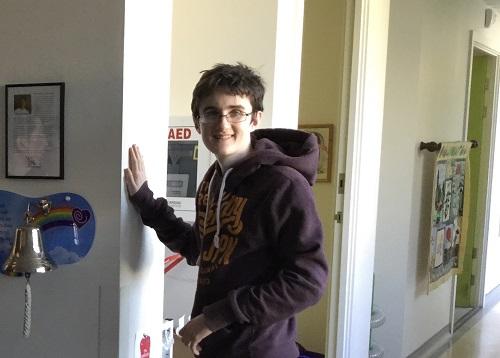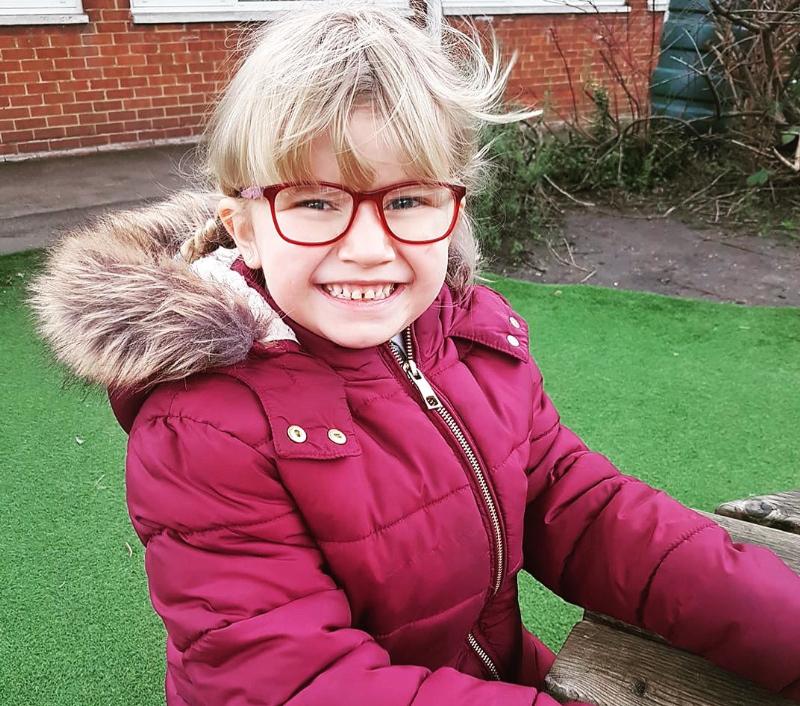
Lewis' work experience and rehab at The Children's Trust
In 2015 Lewis Houlihan suffered a brain injury as a result of an AVM. Now on work experience for The Children’s Trust, he shares his rehabilitation story.
In 2015, 15-year-old Lewis was left with a brain injury. Now aged 21, Lewis shares his experience of school, college and university.

Published: 21/04/2021. Young person aged 15 years.
When I was 15 years old, I suffered an AVM, which resulted in an acquired brain injury. I don’t remember much, but I just fell down on the floor. I spent time in hospital then went to The Children’s Trust for rehabilitation.
I remember the therapy sessions, which included occupational therapy and speech and language therapy. Physiotherapy was usually twice a day and it was good to be in a room at the same time as other people in their sessions. We had a comradeship with each other. It was really encouraging because when I saw other people do better than me it inspired me to work harder.
I’d start each day full of energy and look forward to all parts of the day. But I noticed, even by break time, that I had started to run out of energy. Life was very difficult at that time, especially at the beginning.
I did talk to other people but was hard to remember other peoples’ names. And there were conversations where I wanted to talk, but I didn’t as I found it hard to think about things to talk about.
I was kind of reserved but apologetic. I wasn’t really being myself and I’d get tired near the end of these conversations. But this definitely improved over time and it did get easier.
I remember one child who was mostly speech-blind (he could mostly say one-syllable words) and could not use his right-hand at all. However, on his last week he started showing major signs of recovery. I saw him and said ‘hi’ and he swivelled around and this time he said ‘hello’. From that point onwards I was very happy as I could see there definitely was a light at the end of the tunnel.
After rehab I returned home and went back to school. I went into Year 10 and had been out of school for about eight months. I found this quite hard as I had fatigue and memory difficulties.
I started with a small-sized friend group, as my friends from the previous year were still there. After this year, unfortunately I had very few friends as the aforementioned friends were busy studying at sixth form or had moved on to college or apprenticeships. This was a problem for me in the first term, however my extreme fatigue made me feel so tired that I felt I had to rest at lunch breaks etc rather than talk with friends.
When I received my GCSE results I decided to go to college to study practical BTECs rather than A-levels, meaning less exams which helps my short term memory issues.
I thought about where to go for further education after the summer. I considered various colleges and schools, however, the courses available at Reigate College and the potential support there both seemed better for me so I decided to go to Reigate College.
My family got in touch with The Children’s Trust’s Brain Injury Community Service (BICS) to help with my transition. I was worried about making new friends, coping with college demands and the support I would receive there.
College staff, local therapists and my family and I were supported by BICS’ occupational therapist, speech and language therapist and educational psychologist to assist in my recovery and provide guidance and support to the college.
We had sessions to help the college understand my extreme fatigue and brain injury and the challenges I faced. BICS also met my local therapists and educational support staff to increase their knowledge around the impacts of brain injury.
As well as the various services available, one person I befriended from The Children’s Trust started learning at Reigate College. We saw each other a few times, however our timetables rarely aligned and we both had a hectic week for both years, leaving half an hour or less per week when we were able to meet in Reigate. It was great to meet someone with similar difficulties.
I found it hard to make friends around college as I felt extreme fatigue and I also had a lot of work; any work at college took me triple the amount of time to complete even with the assistance of very good teaching support.
I met a couple of friends in Spring term of U6; personally, I was lonely at college with only a few friends out of 2000 pupils. But I did make friends and went away with them in the UK. I was also appointed as the disabilities officer for the student union and helped to organise events that the group held at the college.
College was a challenge, waking at 06:45, getting ready and travelling into college at 08:30. Then I worked from 09:00 at college with breaks between lessons until about 16:15, then I travelled home. Fortunately, I had a taxi journey for both the journey to/from college as my decreased mobility introduced risks with travel as I have balance issues.
When I returned home, I worked on my laptop on coursework until dinner and then worked until 23:00 then went up to bed where I found it difficult to properly sleep. I repeated this daily until the weekend, where I recuperated.
When I finished college I had the summer holidays, where I rested. I travelled down to university in September to study Occupational Therapy. I found university life very hard, learning a new place, meeting new people and adapting to a new way of working. I also found studying and trying to live independently very difficult.
My parents travelled down to provide support, and helped me with pre-prepared meals, plus cleaning and doing my washing. My fatigue was severe, but I wanted try my hardest at my studies. I now know that I need more support.
The coronavirus lockdown took effect in March, so I travelled home for protection as I am in an ‘at risk’ group. I was not able to return to the course due to COVID and the lack of support in this new way of studying. I am going to start looking for a job once COVID is under control. I am undecided about whether I go back to university later in life – but I am probably going to live at home and commute in future should I decide to study.
I enjoy baking and cooking, along with going for a walk to help clear my mind and keep fit. I still find socialising hard as I cannot multitask such as listen and talk at the same time; conversations are tough to maintain. I used to enjoy reading however I cannot now as I have visual and memory problems.
I still enjoy gaming on my iPad, PS4 or phone or making/painting Warhammer 40,000. They have all really helped me focus during the lockdown, and this has been a long-term hobby. When lockdown is relaxed, I am really looking forward to visit the shops to play against others.

In 2015 Lewis Houlihan suffered a brain injury as a result of an AVM. Now on work experience for The Children’s Trust, he shares his rehabilitation story.

The Children's Trust Community Rehabilitation Service provides specialist goal-orientated neurorehabilitation delivered in the child's environment. Our ultimate goal is to maximise the child's participation in everyday life.